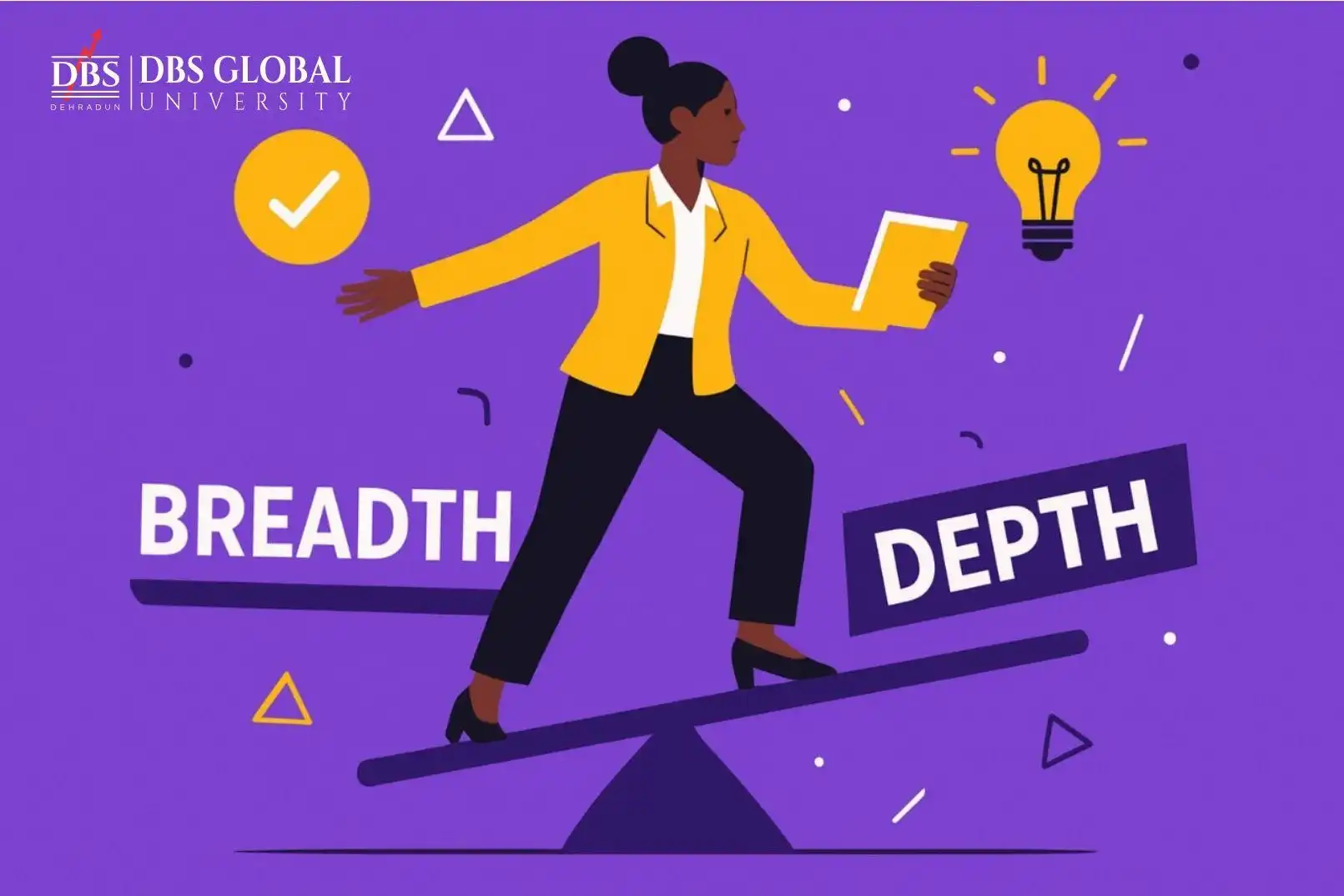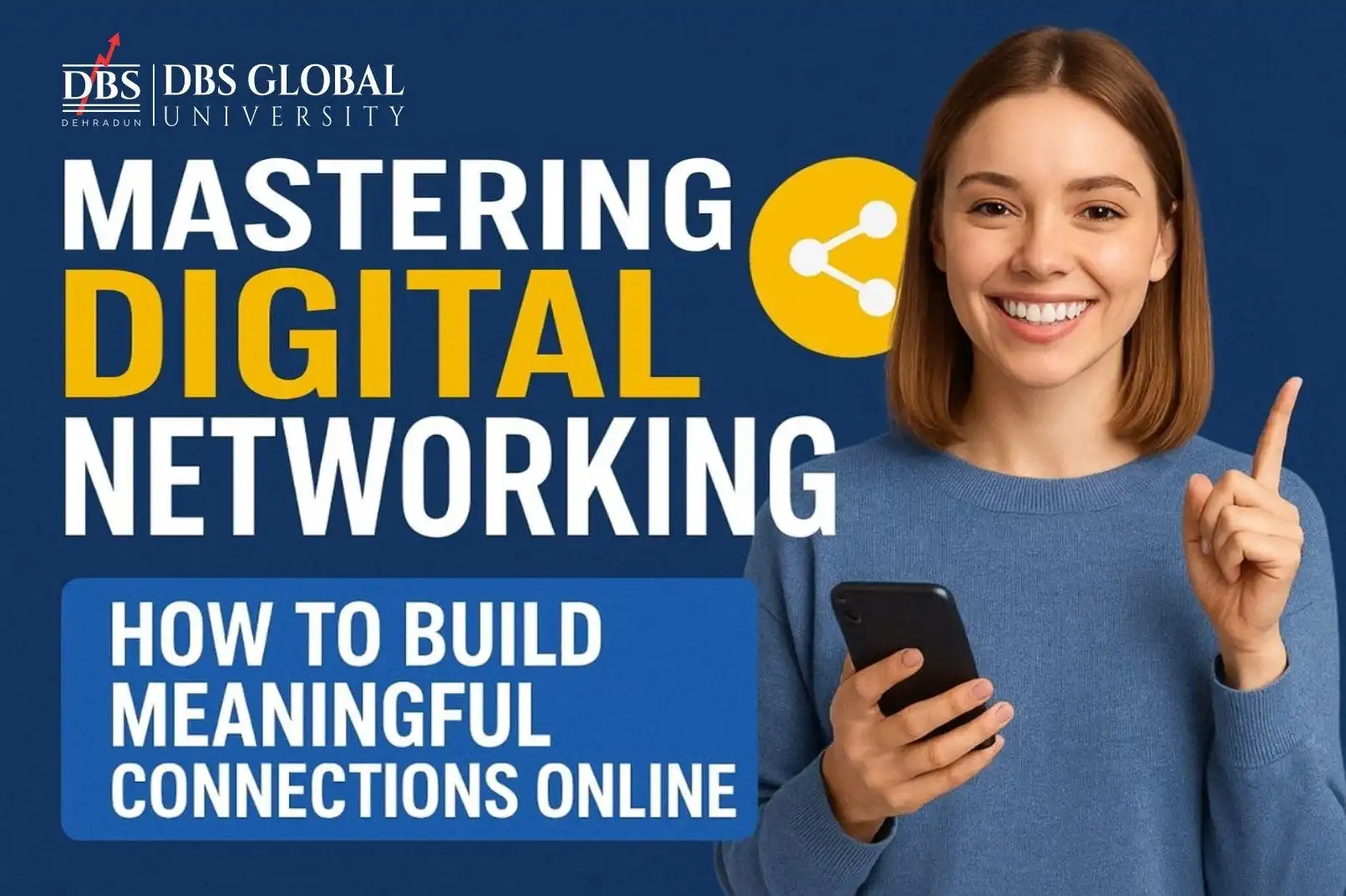
Breadth and Depth: The Essential Skills Employers Seek in 2025
admin
- 0
In 2025, being only a specialist or only a generalist will no longer be enough. Employers are not looking for someone who simply knows one thing deeply or many things superficially. Here we discuss how you can enhance your job skills in 2025.
In today’s competitive job market, employers want more than just specialized knowledge. They are looking for candidates who combine breadth and depth of skills, a balance of versatility and expertise that drives real impact. Having a wide range of abilities allows professionals to adapt to changing demands, while deep knowledge in key areas ensures they deliver high-quality results. Understanding why employers value this combination can help you shape a career that stands out and thrives.
But what exactly do employers mean by breadth and depth? How can you develop both without spreading yourself too thin? And why is this balance becoming more critical than ever in 2025 and beyond? In this article, we will break down what breadth and depth look like in the modern workplace, explore the skills employers actively seek, and provide actionable tips to build a professional profile that impresses recruiters and sets you up for long-term success.
What Breadth of Skills Means and Why It Matters
Breadth of skills refers to having a wide range of abilities across different areas, rather than focusing on just one specialty. Employers value this because professionals with diverse skills can adapt to changing job demands, collaborate across teams, and solve problems from multiple angles. In other words, breadth allows you to see the bigger picture while contributing in more than one way.
For example, a marketing professional with experience in content creation, data analytics, and social media strategy can step into multiple roles within a project. This versatility makes them highly valuable to employers who need team members capable of handling various responsibilities.
Having breadth does not mean you know everything superficially. Instead, it is about developing transferable skills like communication, problem-solving, and project management that complement your areas of expertise. The more adaptable and well-rounded you are, the more likely employers will see you as a candidate who can grow with the organization.
Why Depth of Skills Still Matters
While breadth of skills makes you versatile, depth of skills ensures you can deliver expertise where it counts. Depth refers to having deep knowledge and mastery in one or more key areas, allowing you to solve complex problems, innovate, and make informed decisions. Employers want team members who can go beyond surface-level understanding and contribute solutions that require real expertise.
For instance, a software developer may have broad knowledge of multiple programming languages, but their deep specialization in cybersecurity or machine learning makes them a critical asset for projects requiring advanced technical skills. Depth demonstrates credibility, reliability, and the ability to tackle challenges that demand focused knowledge.
Balancing breadth and depth means you can be both adaptable and authoritative. You can pivot across roles and projects thanks to your broad skills, yet deliver high-quality results in your specialized areas. This combination is what employers increasingly look for in a candidate — someone who is not just a jack-of-all-trades or a one-dimensional expert, but a professional capable of thriving in complex, evolving environments.
Imagine a team working on a critical project. One member knows a little bit about every aspect, from planning to data analysis to client communication, while another has mastered a single skill to perfection. The first can see the project as a whole, spotting connections and anticipating challenges across different areas. The second can tackle complex problems in their domain with precision and insight. Alone, each has strengths and weaknesses. Together, they create a dynamic balance that drives the project forward efficiently.
This scenario reflects what employers are looking for in real life. They want individuals who can adapt to new challenges while applying deep expertise when it matters most. Your career can mirror this balance: broad skills help you navigate diverse roles, and deep knowledge ensures you deliver meaningful results. Combining these with fluid learning, which lets you adapt to the unexpected, and crystallized learning, which leverages your accumulated wisdom, creates a professional profile that stands out in any work environment.
Fluid vs Crystallized Learning: How They Shape Your Skills
To truly develop both breadth and depth, it helps to understand the two types of intelligence that guide learning: fluid and crystallized.
Fluid Learning
Fluid learning is your ability to solve new problems, think logically, and adapt to unfamiliar situations. It is flexible and creative, allowing you to approach challenges you have never seen before. Developing fluid skills enhances your breadth, helping you navigate diverse roles and collaborate across disciplines. For example, learning how to analyze data in a new software tool or quickly adapting to a shifting project requirement relies on fluid intelligence.
Crystallized Learning
Crystallized learning, on the other hand, is the accumulation of knowledge and experience over time. It represents the expertise and deep understanding you have built through practice, education, and reflection. Crystallized skills strengthen your depth, allowing you to make informed decisions and provide specialized solutions in your area of mastery. For instance, years of experience in marketing strategy or financial analysis give you insights that cannot be replicated overnight.
Why Both Matter
The combination of fluid and crystallized learning is essential. Fluid learning keeps you adaptable and able to tackle new challenges, while crystallized learning ensures you can leverage accumulated knowledge effectively. Together, they help you develop a career profile that is both versatile and authoritative, exactly what employers seek in today’s dynamic job market.
How to Build Breadth and Depth in Your Career
Developing a balance of breadth and depth requires a strategic approach to learning, experience, and skill-building. Here are some actionable steps to help you stand out to employers:
- ●Identify Your Core Expertise: Start by defining the area or skill where you want deep mastery. This could be technical, creative, or strategic. Invest time in certifications, advanced courses, or projects that strengthen this specialization. Depth gives you credibility and makes you indispensable in your field.
- ● Expand Your Horizons: At the same time, explore complementary skills that broaden your capabilities. Attend workshops, take online courses, or volunteer for cross-functional projects. Skills like communication, problem-solving, data analysis, and leadership are highly transferable and valued across industries.
- ● Apply Fluid and Crystallized Learning: Leverage both types of learning to build a strong skill set. Fluid learning helps you adapt to new challenges, think critically, and approach unfamiliar problems, expanding your breadth. Crystallized learning draws on accumulated knowledge and experience to deepen your expertise and strengthen your depth. Combining these approaches ensures you can navigate dynamic work environments while delivering specialized results.
- ●Seek Diverse Experiences: Work on projects outside your comfort zone, collaborate with teams in different domains, or take on roles that expose you to new challenges. Real-world experience helps you apply both breadth and depth in practical ways, making your skills more versatile and marketable.
- ● Keep Learning Continuously: The modern workplace evolves quickly, so continuous learning is essential. Stay updated with industry trends, emerging technologies, and best practices. Reading, attending conferences, and networking with experts in other fields will strengthen both your adaptability and your specialized knowledge.
- ● Reflect and Refine: Periodically assess your skills to identify gaps or opportunities. Ask for feedback, track your achievements, and adjust your learning plan. This reflection ensures that your breadth does not dilute your depth and that your depth does not limit your flexibility.
By combining breadth, depth, and both fluid and crystallized learning, you create a professional profile that is versatile, credible, and highly attractive to employers in 2025 and beyond.
By 2025, AI and automation will handle routine tasks.
What will distinguish humans is their ability to connect dots across disciplines while mastering nuanced expertise. Breadth and depth are no longer optional; they are the new currency of employability.
Conclusion: Stand Out with Breadth, Depth, and Smart Learning
In today’s fast-changing job market, having either broad skills or deep expertise alone is no longer enough. Employers are looking for professionals who combine breadth and depth, supported by both fluid and crystallized learning. Fluid learning keeps you adaptable, creative, and ready to tackle new challenges, while crystallized learning ensures you can apply accumulated knowledge to deliver high-quality, specialized results.
By intentionally developing both types of skills and embracing continuous learning, you position yourself as a versatile, reliable, and high-impact professional. Whether you are just starting your career or looking to grow in your current role, understanding this balance can help you make strategic choices, take on meaningful projects, and ultimately stand out to employers.
The key is to see learning as an ongoing journey. Build your breadth, strengthen your depth, and harness both fluid and crystallized intelligence, and you will not just meet employers’ expectations, you will exceed them.


